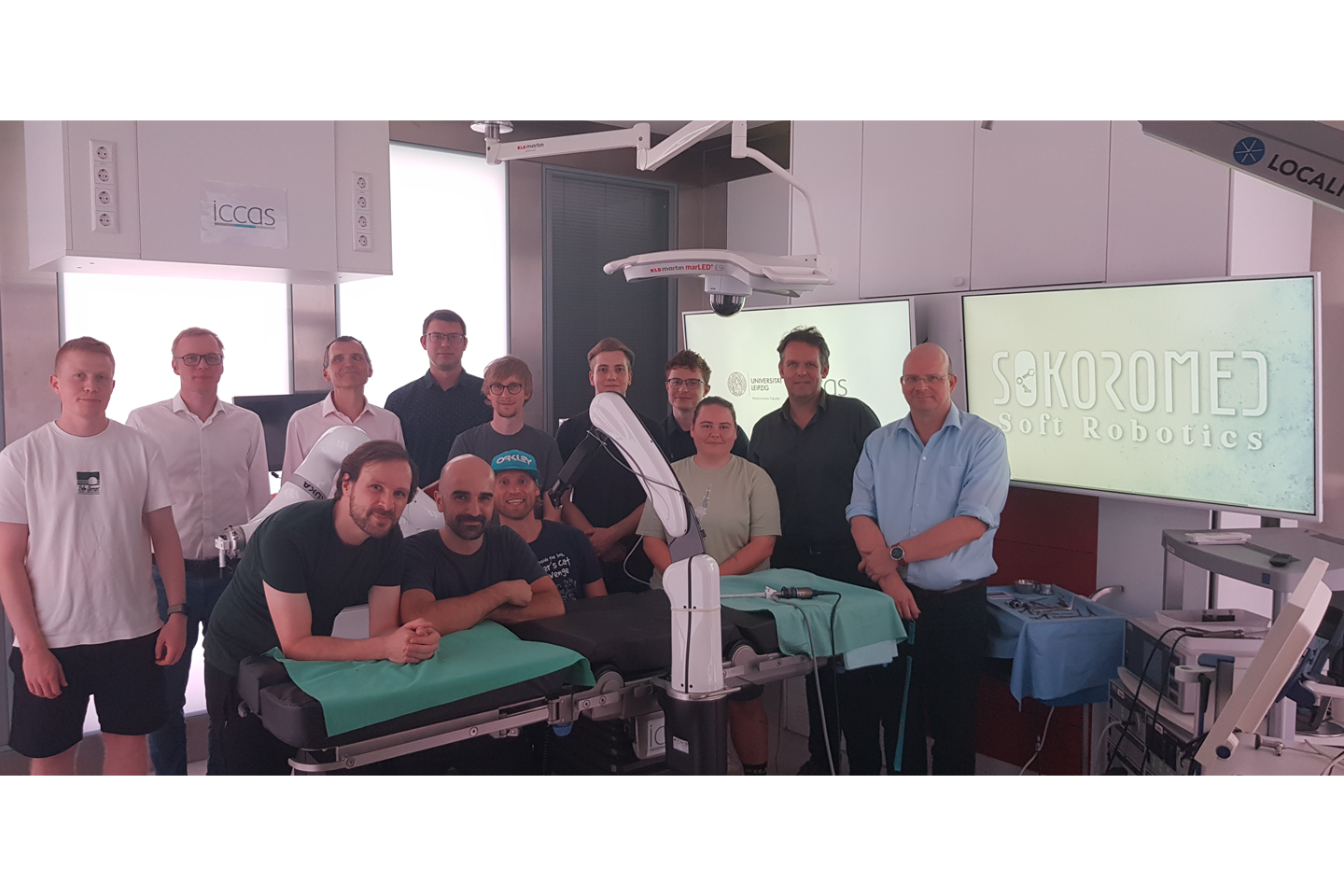Project "SoKoRoMed": Faculty of Engineering at HTWK Leipzig and ICCAS at Leipzig University develop new medical and robotics system

The successful kick-off of the "SoKoRoMed - Soft and Continuum Robotics in Medicine" project on 3 September 2024 marked the start of a joint research project between the Faculty of Engineering at HTWK Leipzig University of Applied Sciences and the Innovation Center Computer Assisted Surgery (ICCAS) at Leipzig University. The aim of the project is to develop soft robotic end effectors for clinical use, with the combined resources and expertise of both cooperation partners playing a central role.
For SoKoRoMed, the HTWK is making a decisive contribution to the technical implementation of the system components with its expertise in control engineering (Prof. Jäkel), simulation (Prof. Schönfelder) and materials science (Prof. Böhm). The ICCAS (project lead Prof Thomas Neumuth) focuses on clinical requirements, system design and clinical integration.
The research project aims to establish defined process chains for the production of patient- and application-specific soft end effectors. New materials, suitable calculation methods and an adapted 3D printing technique are being developed for this purpose. The soft and continuum robots will be designed in the project and used in combination with conventional medical and robotic technology in an overall clinical demonstrator for specific interventions. Clinical translation will be facilitated by defining standards for system and functional description.
Soft and continuum robots (SCR) made of soft polymers allow increased mobility and manoeuvrability as well as improved precision in complex surgical procedures. Although various approaches and control methods for such SKRs have already been researched, only a few of the existing concepts are currently in clinical translation due to numerous challenges. One of the main reasons for this is the high amount of time required to manufacture soft robots due to the large number of sub-steps involved. In addition, the design, simulation and correct control of these systems pose further scientific challenges.
The project is funded by the Sächsische Aufbaubank - Förderbank (SAB) until summer 2026 and co-financed by the European Union.